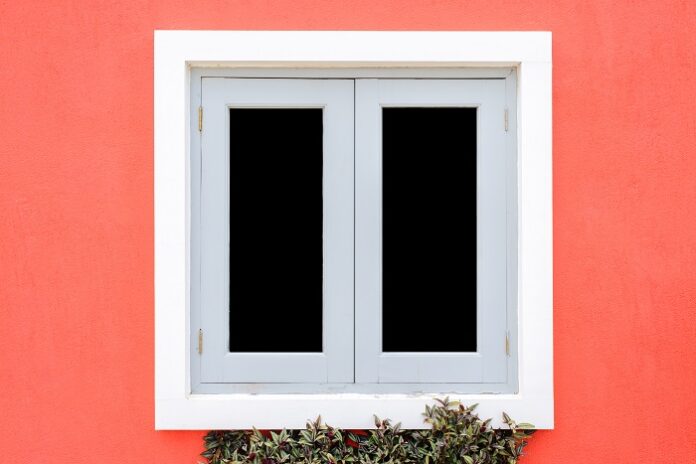Timber sash windows represent a timeless element in architectural design, blending historical charm with modern functionality. These windows, characterised by their classic sliding sashes and the natural beauty of wood, have been a staple in building design for centuries. Originating in Europe and gaining prominence in Georgian and Victorian architecture, top quality timber sash windows have endured as a symbol of elegance and craftsmanship. In the modern era, they are appreciated not only for their aesthetic appeal but also for their environmental benefits.
Historical Background of Timber Sash Windows
Timber sash windows hold a special place in London’s architectural history, echoing the city’s rich past and evolving urban fabric. In London, these windows became a defining feature of Georgian and Victorian homes, reflecting the elegance and refinement of these eras. Originally designed to counterbalance the weight of heavy glass panels with cords and weights, timber sash windows in London were not just practical innovations but also aesthetic statements.
As you stroll through the historic streets, from the grand townhouses of Mayfair to the charming terraces of Notting Hill, the prevalence of timber sash windows is a testament to their enduring appeal and functionality. Their presence in London’s architecture showcases the city’s commitment to preserving its heritage while adapting to modern needs, making timber sash windows a symbol of London’s architectural legacy.
Environmental Benefits of Timber as a Material
The environmental benefits of timber, particularly when utilized by timber sash window companies, are substantial and increasingly relevant in today’s eco-conscious world. Timber, as a natural and renewable resource, offers a greener alternative to synthetic materials. A timber sash window company, by choosing wood, contributes to reducing the carbon footprint associated with window manufacturing. Wood’s natural insulation properties enhance energy efficiency in homes, reducing the need for excessive heating and cooling, and thereby lowering energy consumption. Additionally, timber’s ability to be recycled or biodegraded at the end of its life cycle makes it an environmentally responsible choice.
Energy Efficiency of Timber Sash Windows
Timber sash windows are celebrated not only for their aesthetic appeal but also for their remarkable energy efficiency. The natural insulating properties of wood make these windows a superior choice for maintaining a comfortable indoor climate. Timber acts as a natural barrier against external temperature fluctuations, helping to keep homes warm in winter and cool in summer. This inherent insulation reduces the reliance on heating and cooling systems, leading to significant energy savings and a reduction in carbon footprint.
Moreover, the design of sash windows, which allows for adjustable ventilation, contributes to an efficient air circulation, further enhancing the energy efficiency of these windows. As a result, timber sash windows offer an elegant, yet practical solution for those looking to improve their home’s energy efficiency while maintaining a classic architectural style.
Longevity and Durability
The longevity and durability of timber sash windows are among their most compelling attributes, making them a wise investment for homeowners. Crafted from high-quality wood, these windows are renowned for their robustness and ability to withstand the test of time. Timber, a material known for its strength and resilience, can endure various weather conditions with proper care and maintenance.
The durability of timber sash windows means they are less likely to need replacement or frequent repairs, contributing to their cost-effectiveness in the long run. Additionally, the enduring nature of timber prevents frequent turnover of materials, which is beneficial for the environment. This longevity is not just a testament to their construction quality but also speaks to the timeless appeal of timber sash windows, as they continue to function effectively and maintain their aesthetic charm for many years, adding enduring value to any property.
Recyclability and End-of-Life Advantages
The recyclability and end-of-life advantages of materials are increasingly vital considerations in our environmentally conscious world, and this is where timber sash windows excel. Wood, as a natural and biodegradable material, offers a sustainable end-of-life cycle. Once a timber sash window has reached the end of its usable life, the wood can be recycled or repurposed, thereby reducing waste and the need for new raw materials.
This recyclability is a significant environmental benefit, as it diminishes the carbon footprint associated with the production and disposal of window materials. Moreover, if recycling is not feasible, the biodegradable nature of wood ensures that it can decompose naturally without leaving harmful residues or pollutants. This aspect of timber sash windows aligns with the growing demand for sustainable and eco-friendly building materials, making them an excellent choice for environmentally responsible construction and renovation projects.
Conclusion
In conclusion, companies like SJB Sash Windows are at the forefront of blending traditional aesthetics with modern sustainability practices through their focus on timber sash windows. SJB Sash Windows showcases how the classic charm and enduring quality of timber sash windows can be seamlessly integrated into contemporary building practices, meeting the dual demands of beauty and environmental responsibility.
The use of timber, a material with excellent insulating properties, durability, and recyclability, underscores a commitment to eco-friendly construction. As we continue to evolve towards more sustainable living spaces, the role of companies like SJB Sash Windows becomes increasingly vital. They not only provide a window into the past with their timeless designs but also offer a vision of a more sustainable future.
Image by tirachard on Freepik





